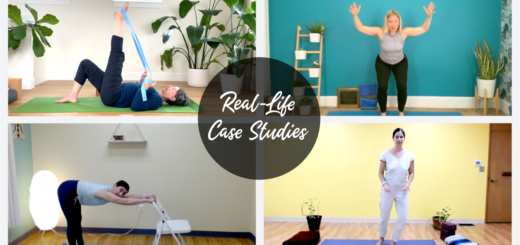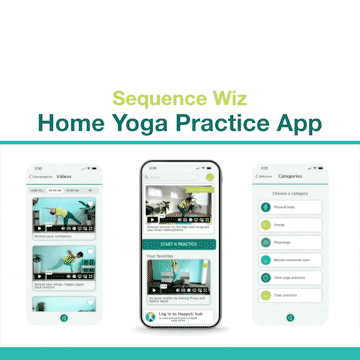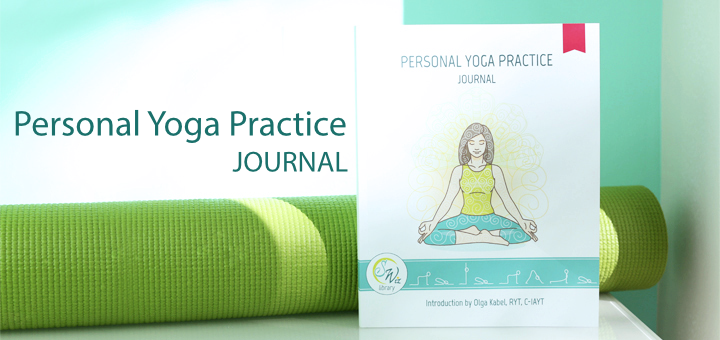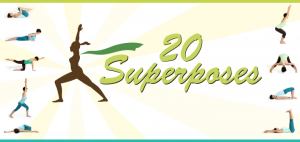Two main qualities that define a good teacher and attract new students
1Several years ago, I went to an ophthalmologist’s office for a vision check. At one point the doctor said with slight irritation: “Your cornea can get scarred if you wear contacts for too long. You should really know this, they are YOUR eyes.” My mouth dropped open – how was I supposed to know this? Should I be an eye expert simply because I have eyes? Few years later I got corrective eye surgery with a different doctor, where I had to choose between two surgery options: scraping and a flap. The doctor recommended scraping, so I went with that. At the follow-up appointment I was complaining of foggy vision and the doctor said: “I am sorry to hear that, we should have gone with the flap.” My mouth dropped open once again. I expected him to be an authority on the subject. He had all the fancy letters after his name and certificates on the walls to prove his expertise, but, apparently, I should have known better. In the first case the doctor demonstrated expertise without empathy. The second doctor showed empathy without expertise. Needless to say, I never went back to either.
What we usually expect from people we entrust with our wellbeing is a perfect combination of both empathy and expertise. A proper expert would be able to empathize with what we are going through, while at the same time be knowledgeable enough to give us tools to overcome our challenges. In stories, a person like that usually serves as a guide to the main character who aids in the hero’s journey and facilitates their transformation. The perfect example of a guide like that is Yoda, who patiently and empathetically teaches Luke Skywalker how to use the Force. He is also an authority on the subject because he is a Jedi himself. Donald Miller in his book Building a Story Brand writes: “Storytellers use the guide character to encourage the hero and equip them to win the day.”
Our own lives are also being steered by all sorts of guides who step in at just the right moment to assist us on our journey. Donald Miller continues: “Just like in stories, human beings wake up every morning self-identifying as a hero. They are troubled by internal, external and philosophical conflicts, and they know they can’t solve these problems on their own.” We all get guidance from parents, teachers, coaches, partners, doctors, mentors, writers, leaders, therapists, and so on, at different stages of our lives. Yoga teachers can be those guides, as well, as long as they play a role in the hero’s journey.

My teacher Gary Kraftsow likes to compare our personal journey to the spaceship Voyager that was lunched in 1977 and is still traveling in space gathering information. Voyager uses the gravitational assist from different planets to propel itself on its journey. Gary says that it is the same with a good teacher: you orbit around the teacher for a while, gather knowledge, get encouragement and acquire new skills, and all that propels you forward. You break away from the teacher and keep going on your own journey. You don’t want to get caught in someone’s orbit indefinitely.
The qualities of empathy and expertise define a good teacher. Both of those qualities are essential in our work with yoga students, but today we are focusing on expressing those qualities in your initial communications with students who consider purchasing your services. When the potential new student meets you for the first time (in person or via your electronic communications), they are forming an impression of your brand by answering the following two questions for themselves: “Can I trust this person?” And “Can I respect this person?” Trust comes first and is much more important. There are several ways to establish trust with your potential students:
- Express your understanding of the challenges they are going through,
- Show them that you have something in common,
- Provide them with recommendations from people and organizations they already trust,
- Show them that you care.
For example, when I was looking for a dog trainer for my new puppy, first I narrowed my choices down to one particular dog training school, because I liked their approach to puppy training based on reward and positive reinforcement (showing me that they care about puppies). Then I selected a specific trainer based on the fact that she used to work with rescue dogs who had behavioral problems (understands my challenges), and herself has a dog of the same breed as mine (has something in common with me). That information presented on the company’s website communicated to me that the brand as a whole and my new trainer in particular know what I am going through, therefore I trust them to help me.
Once the trust is established, you need to demonstrate your expertise, which basically means showing your competence. People simply need confirmation that you know what you are doing. There are some right and wrong ways to go about demonstrating your expertise.
Try to avoid the following things while demonstrating your competence to new potential students:
- Lecturing,
- Positioning yourself above your students as a “know-it-all”,
- Overwhelming your students with yoga-specific concepts and jargon,
- Listing every certification or training you ever received,
- Dumbing things down instead of explaining them simply.
The best way to demonstrate your authority and competence is to have others talk about it. This can take different forms, for example:
- Relevant testimonials from current and former students,
- Partnerships with respected organizations,
- Awards and certifications that acknowledge specific skills relevant to your target audience,
- Your own published content (blog posts, articles, books, etc.) that people can access to form their own impression of your expertise.
Donald Miller writes: “Once we express empathy and demonstrate authority, we can position our brand as the guide our customer has been looking for.” As a yoga teacher, you are already ahead with the students who got to experience your services in the past. If the student had attended a yoga class with you, they have an initial idea of whether or not they trust you and whether or not you know what you are talking about. You want to expand the pool of people who have first-hand experience of your services, that is why it is very useful to let them “try before they buy”. This trial can take a form of a free online class, or prerecorded video, or any kind of free short sample of your services. That way potential students get to experience you in action, develop trust and recognize your competence.
However, this is just the first step in your relationship with your potential students. Donald Miller explains that “even though our customers like us and trust us, it doesn’t mean they are going to place an order. There is still a yawning chasm between a customer’s affection and their decision to invest their hard-earned money in what we’re offering. “ There is something else that you need to do to help them make that purchasing decision – we will talk about it next time. Tune in!
[jetpack_subscription_form]
This blog is a part of a series.
Read Part 1: The secret formula that will grow your yoga business >
Read Part 2: Who are your yoga students and what problems do they face?
References
1. Building a StoryBrand: Clarify Your Message So Customers Will Listen by Donald Miller




















Thank you for this Olga. I find it very useful.